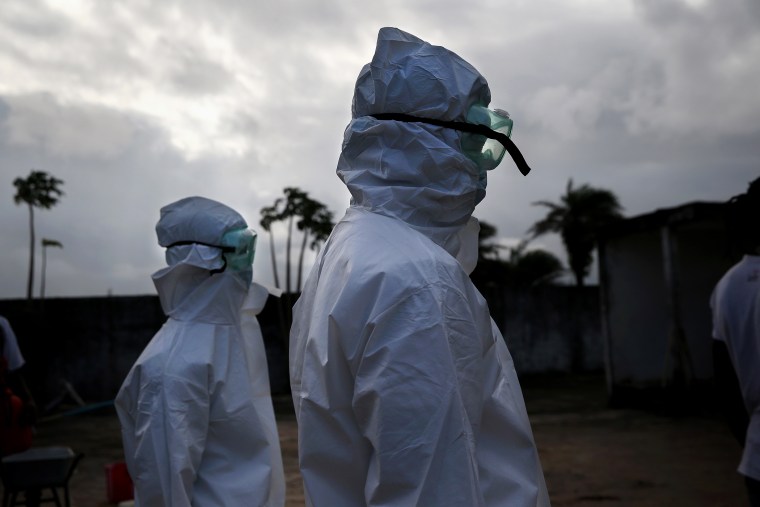The UN Security Council on Thursday unanimously adopted a resolution declaring the Ebola outbreak in West Africa "a threat to international peace and security."
UN Secretary General Ban Ki-moon, who oversaw the council's meeting on the virus outbreak, called on countries to provide urgent aid and resources to contain and treat the disease. "Ebola matters to us all," he said. "We cannot afford delays. The penalty for inaction is high. We need to race ahead of the outbreak and then turn and face it with all of our energy and strength."
Resolution 2177 asked countries to "provide urgent assistance, including deployable medical capabilities such as field hospitals" and to provide "support capabilities for airlift."
"Instead of isolating the affected countries, we call for flooding them — flooding them with resources," said U.S. Ambassador to the UN Samantha Power.
This is only the third resolution implemented by the council that addresses a public health crisis. The 15-member body adopted measures to address the HIV/AIDS epidemic in 2000 and 2011.
The council also urged nations with ties to the affected countries "to lift general travel and border restrictions, imposed as a result of the Ebola outbreak," as that would "contribute to the further isolation of the affected countries and undermine their efforts to respond."
During the past six months, the Ebola virus has killed more than 2,400 people and affected more than 4,000 individuals, particularly in Guinea, Sierra Leone, Liberia, Nigeria and Senegal. The secretary-general called this the worst Ebola outbreak on record and said that the number of Ebola infections were doubling every three weeks.
"The gravity and scale of the situation now require a level of international action unprecedented for a health emergency," Ban said.
The council heard from medical experts that efforts to contain the outbreak need to be three times bigger than the current response. Additionally, the United Nations is hoping to stop the spread of the disease within six to nine months.
A General Assembly summit to discuss Ebola is scheduled for next week. Ban announced plans for a new UN mission to combat the outbreak. "Our best estimate is that we need a 20-fold increase in assistance," he said.
"This is likely the greatest peace-time challenge that the United Nations has ever faced," said Margaret Chan, director-general of the World Health Organization.
On Tuesday, President Obama announced that he will send 3,000 troops to West Africa to assist with the disaster response. "We have to act fast — we can't dawdle on this one," the president said, adding that "this is a global threat, and it demands a truly global response."
The military personnel will include medical, engineering, and security forces, and they have been charged with building 17 treatment centers in Liberia, shipping 10,000 sets of protective equipment and supplies, training healthcare workers, and assisting with security.
